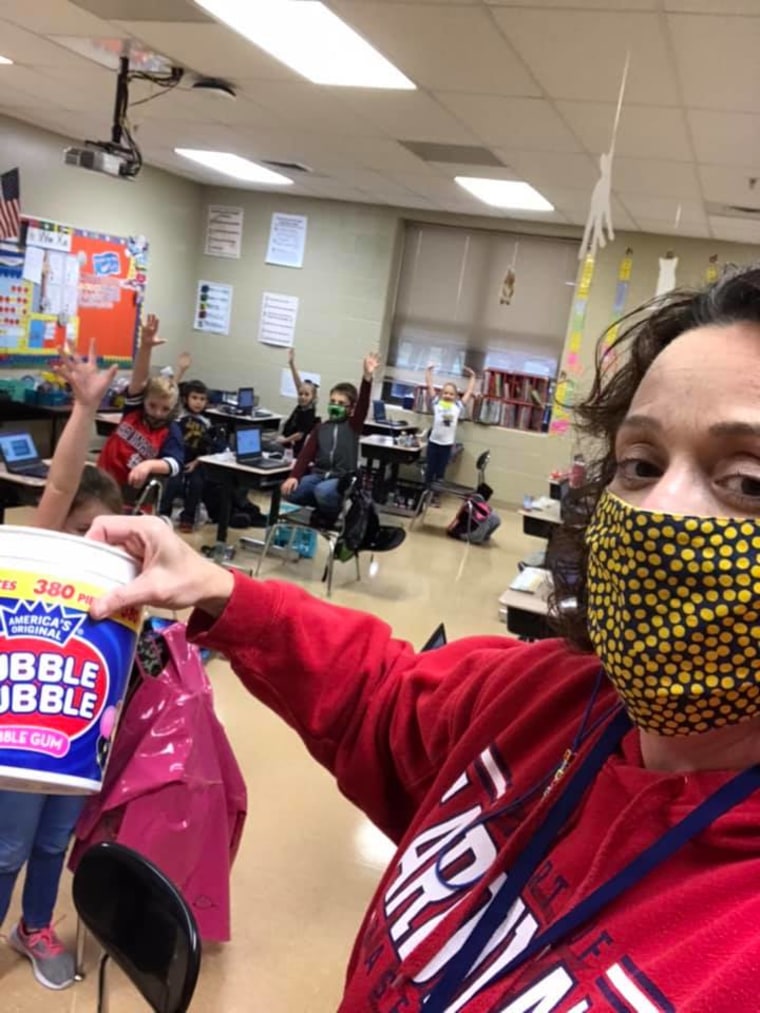As a fairly high-strung, working mom of three kids, the “Sunday Scaries” are not a new concept to me. But recently, after a few days off for the Thanksgiving holiday, the scaries set in on Saturday. I knew that was a bad sign.
I realized the general buildup of anxiety is a result of what I’m calling the “winter scaries,” which are quickly approaching.
We’re nine months into this global pandemic, and after a tiny bit of reprieve with warmer months that allowed for outside gatherings, some return to work and school and maybe even a little local travel or camping, a long, dark winter is on the horizon. Many schools that had opened are now shuttering. Many states and cities are enforcing stay-at-home orders due to rising Covid-19 numbers. And holiday travel to visit loved ones? Forget about it.
Not to mention, most of us are facing extended time working from home while trying to supervise remote learning, or are without jobs at all. And our front-line workers continue to work extraordinarily difficult and long shifts.
Yes, a vaccine is here. But it will inevitably still be a long, dark winter. So, how do we prepare, get through it, and even thrive?
Remember that you are in control of YOU.
“This is as big as World War II, the biggest crisis in a lifetime,” Dr. Karin Michels, chair of the UCLA Department of Epidemiology, told me. “The thing you have to remember is that this is solvable. If we all stay home. If we all wear masks. If we all stay six feet away, we could kill this virus in a matter of weeks.”
For me, one of the hardest parts of the pandemic is the lack of control. I often feel like I have no idea what or how to plan for, well, anything. But knowing that this is solvable, that we can all play a part in ending this crisis, is empowering.
“I get it,” said Dr. Michels. “Even the top epidemiologists are fatigued. But this is the time to be vigilant and be in control of you and your decisions and your family.”
Settle in for the telework.
Front line workers, you really are my heroes. My neighbor Jim continues to manage the local supermarket graveyard shift to keep the shelves stocked. And my dear friend Sara, a nurse in our local hospital’s Covid-19 ward, continues to take on extra shifts to cover staffing shortages as beds fill up.
But for many of us, we’re stuck at home for the next few months at least. And that can also be stressful.
Cindy Auten, a telework subject matter expert and senior partner at ICF Next, said a transition has happened.
“By summer, most people realized that a metal folding chair and card table weren’t going to cut it [for working at home]. This is time to realize that this could be months – or years – and you may need to get an extra computer monitor or an office chair that doesn’t cause back pain from hunching over all day.”
As we head towards shorter daylight hours, Auten advises that you be disciplined about boundaries. Also, as a mother of two, Auten advised, “schedule in short breaks, time to eat, and time to work with your child on school work. This is the time to have an honest conversation with your manager and team about what you need.”
I have taken to blocking 2:15-2:45 p.m. on my calendar every day. It’s the end of my 8th grader’s online school day and we walk around the neighborhood, talk about his day, assignments and anything else that matters. I find that if I give him that undivided attention there are fewer interruptions during my workday and this connection point allows me to understand what’s going on in his school life without “helicoptering” in.
Press reset.
My kids were last in school on March 12th, so we have figured out what works and what doesn’t. But we needed a reset. We had a family meeting on expectations for virtual school, including setting an alarm and getting up on one’s own and wearing a shirt (not robe!) to virtual class.
But some students have started the school year in person and are now attending online. Janet Throgmorton is the principal of Fancy Farm Elementary School in Graves County, Kentucky.

After 10 weeks of in-person instruction, their last day in school was Nov. 13th, with an unknown return plan. “You have to have a schedule, and you need to stick to it. But that schedule had better include break times and directions on moving your body, even if it’s just walking around the house three times!” Throgmorton is also the mother of twin 13-year-old boys and a college freshman daughter. “I like to give ‘break assignments’ like walking the dog, otherwise they go straight to the Xbox when I am busy working.”
Don’t be afraid to ask for help.
Throgmorton also encouraged parents to speak up when they need help. “I’m reaching out to our families all the time, with emails and calls and checking on Zoom classes. I need – and want – families to reach out when things aren’t going well. I can help.”
And she puts her money where her mouth is. Three years ago, in order to combat bus driver shortages, she got her Commercial Drivers License so that she could drive the school bus as a backup and even save money on field trips for her students, half of whom live below the poverty line. “Look. If I hear of a student struggling with consistent internet access from Grandma’s house or not getting a science concept, I will go there myself, pick up that student, and bring him or her to school, we can have up to 45 students in the building according to current guidelines. We all want to help, but parents need to let me know what’s going on.”
With my son, the hardest class right now is Spanish. I realized I didn’t hear him actually speaking Spanish in the room next to my makeshift home office. A Google hangout video call with his teacher and I understood the challenge of having 28 13-year-olds speaking Spanish at the same time, so we investigated alternatives together, like using a language-learning app, to get the conversation skills he needed.
Prepare for the hard by taking care of you
I don’t know about you, but I’m tired of the self-care shaming. That if you’re not taking a nightly bath with candles and a good book and setting real boundaries, then you’re doing it wrong. When I fall into bed at night after 10 straight hours of online meetings while supervising online school, I may be thinking “Calgon, take me away,” but more times than not, I go to bed. And then proceed to stay up all night worrying about all the things.
This lack of restful sleep wasn’t working for me, so I turned to New York-based values-led coach Cass McCrory. McCrory keeps a post-it note front and center on her fridge of the things that make her feel good. From a Peloton sweat session, to doodling, to reading in the coziest spot in her house, she gives her self-care list prominent real estate on her fridge, right next to the to-do list.
McCrory also uses two light sources to combat the winter darkness. By adding a candle or oil lamp, or even a table lamp in addition to overhead lighting, McCrory finds that her clients are able to shift their mood, and sometimes even perspective. In my little corner of the world, I try to migrate (within the limitations of zoom schedules and my household members’ call and class schedules) with the light. Starting my day with the morning sun at the kitchen table and soaking in the afternoon daylight gives me a small change of scenery, a brighter outlook, and perhaps even a more flattering image on my Zoom return screen.
But we are all human, and everyone has a breaking point. “Yell ‘Uncle.’ I mean it. Real loud. Just cry it out,” says McCrory. “It helps to simply acknowledge that we’ve reached our limit. Bringing that feeling into focus and claiming it does something lovely with making space for a reset.”
Jennifer Folsom is a former vice president of client delivery at Washington, D.C.-based management consulting firm RIVA Solutions Inc. She lives in Alexandria, Virginia, with her husband Ben and has three teenage sons. Her practical guide to modern working motherhood," The Ringmaster," is out now.
